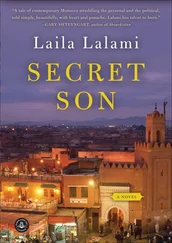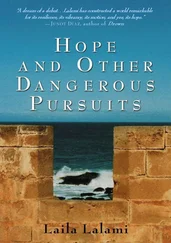As I stood with my master outside one of the huts, I noticed a pile of fishing nets. It was while lifting one up to look at its peculiar threading that I found an odd little pebble. At first, it seemed to me that it was a weight, but the nets had smooth stone anchors, quite unlike this one, which was yellow and rough-edged. Then I thought it might be a child’s toy, for it looked like it could be part of a set of marbles or that it could fit inside a rattle; it might have been left on the fishing nets by mistake. I held it up to the light to get a better look, but Señor Dorantes saw it.
Estebanico, my master said. What did you find?
Estebanico was the name the Castilians had given me when they bought me from Portuguese traders — a string of sounds whose foreignness still grated on my ears. When I fell into slavely, I was forced to give up not just my freedom, but also the name that my mother and father had chosen for me. A name is precious; it carries inside it a language, a history, a set of traditions, a particular way of looking at the world. Losing it meant losing my ties to all those things too. So I had never been able to shake the feeling that this Estebanico was a man conceived by the Castilians, quite different from the man I really was. My master snatched the pebble from my hand. What is this? he asked.
It is nothing, Señor.
Nothing?
Just a pebble.
Let me see. He scratched at the pebble with a fingernail, revealing, under the layer of dirt, a brighter shade of yellow. He was an inquisitive man, my master, always asking questions about everything. Perhaps this was why he had decided to set aside the comfort of his stately home in Béjar del Castañar and make his fortune in an uncharted territory. I did not resent his curiosity about the new world, but I envied the way he spoke about his hometown — it was, always, with the expectation of a glorious return.
It is nothing, I said again.
I am not so sure.
It must be pyrite.
But it might be gold. He turned the pebble around and around between his fingers, unsure what to do with it. Then, suddenly making up his mind, he ran up to Señor Narváez, who was standing in the village square, waiting for his men to complete their search. Don Pánfilo, my master called. Don Pánfilo.
I should describe the governor for you. The most striking thing about his face was the black patch over his right eye. It gave him a fearsome look, but it seemed to me his sunken cheeks and his small chin did not particularly reinforce it. On most days, even when there was no need for it, he wore a steel helmet adorned with ostrich feathers. Over his breastplate, a blue sash ran from his shoulder to his thigh and was tied with flourish over his hip. He looked like a man who had taken great pains with his appearance, yet he was also capable of the same coarseness as the lowliest of his soldiers. I had once seen him plug one nostril with a finger and send out a long string of snot shooting out of the other, all while discussing shipping supplies with one of his captains.
Señor Narváez received the pebble with greedy fingers. There was some more holding up to the light, some more scratching. This is gold, he said solemnly. The pebble sat like an offering in his palm. When he spoke again, his voice was hoarse. Good work, Capitán Dorantes. Good work.
The officers gathered excitedly around the governor, while a soldier ran back to the beach to tell the others about the gold. I stood behind Señor Dorantes, shaded from the sun by his shadow and, although I could not see his face, I knew that it was full of pride. I had been sold to him a year earlier, in Seville, and since then I had learnt how to read him, how to tell whether he was happy or only satisfied, angry or mildly annoyed, worried or barely concerned — gradations of feelings that could translate into actions toward me. Now, for instance, he was pleased with my discovery, but his vanity prevented him from saying that it was I who had found the gold. I had to remain quiet, make myself unnoticed for a while, let him bask, alone, in the glory of the find.
Moments later, the governor ordered the rest of the armada to disembark. It took three days to shuttle all the people, horses, and supplies to the white, sandy beach. As more and more people arrived, they somehow huddled around the familiar company of those closest to them in station: the governor usually stood with his captains, in their armor and plumed helmets; the commissary conversed with the four friars, all wearing identical brown robes; the horsemen gathered with the men of arms, each of them carrying his weapon — a musket, an arquebus, a crossbow, a sword, a steel-pointed lance, a dagger, or even a butcher’s hatchet. Then there were the settlers, among whom carpenters, metalworkers, cobblers, bakers, farmers, merchants, and many others whose occupations I never determined or quickly forgot. There were also ten women and thirteen children, standing in throngs beside their wooden chests. But the fifty or so slaves, including this servant of God, Mustafa ibn Muhammad, were scattered, each one standing near the man who owned him, carrying his luggage or watching his belongings.
By the time everyone had congregated on the beach, it was late afternoon on the third day, and the tide was low. The waves were small, and a dark strip of shoreline was exposed. The weather had cooled; now the sand was cold and sticky under my feet. High clouds had gathered in the sky, turning the sun into a faint, distant orb. A thick fog drifted in from the ocean, slowly washing the color out of the world around us, rendering it in various shades of white and gray. It was very quiet.
The notary of the armada, a stocky man with owlish eyes by the name of Jerónimo de Albaniz, stepped forward. Facing Señor Narváez, he unrolled a scroll and began to read in a toneless voice. On behalf of the King and Queen, he said, we wish to make it known that this land belongs to God our Lord, Living and Eternal. God has appointed one man, called St. Peter, to be the governor of all the men in the world, wherever they should live, and under whatever law, sect, or belief they should be. The successor of St. Peter in this role is our Holy Father, the Pope, who has made a donation of this terra firma to the King and Queen. Therefore, we ask and require that you acknowledge the Church as the ruler of this world, and the priest whom we call Pope, and the King and Queen, as lords of this territory.
Señor Albaniz stopped speaking now and, without asking for permission or offering an apology, he took a sip of water from a flask hanging from his shoulder.
I watched the governor’s face. He seemed annoyed with the interruption, but he held back from saying anything, as it would only delay the proceedings further. Or maybe he did not want to upset the notary. After all, without notaries and record-keepers, no one would know what governors did. A measure of patience and respect, however small, was required.
Unhurriedly Señor Albaniz wiped his mouth with the back of his hand and resumed speaking. If you do as we say, you will do well and we shall receive you in all love and charity. But if you refuse to comply, or maliciously delay in it, we inform you that we will make war against you in all manners that we can, and shall take your wives and children, and shall make slaves of them, and shall take away your goods, and shall do you all the mischief and damage that we can. And if this should happen, we protest that the deaths and losses will be your fault, and not that of their Highnesses, or of the cavaliers here present. Now that we have said this to you, we request the notary to give us his testimony in writing and the rest who are present to be witnesses of this Requisition.
Until Señor Albaniz had arrived at the promises and threats, I had not known that this speech was meant for the Indians. Nor could I understand why it was given here, on this beach, if its intended recipients had already fled their village. How strange, I remember thinking, how utterly strange were the ways of the Castilians — just by saying that something was so, they believed that it was. I know now that these conquerors, like many others before them, and no doubt like others after, gave speeches not to voice the truth, but to create it.
Читать дальше












